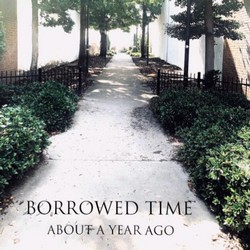Adrianne Lenker walks down the path of some of the greatest folk artists of all time, and her new album “Bright Future” solidified her steps in the genre.
The lead singer of the band Big Thief released her fifth solo studio album on Mar. 22, 2024, and it demonstrates some of Lenker’s best lyricism. Her unique, raw voice takes the high route in this contemporary folk album, allowing any other instrumentals to linger in the back of these twelve tracks.
The album was produced by Lenker and Phil Weinrobe. Lenker stated on a recent Instagram post that when making these tracks, “the music jumped off the page and outta the frame, lifted off the earth, shifted some cells, broke open, then landed back a little more whole.”
Lenker’s music is an acquired taste, created for folk music fans, poets, and people who love with their whole chest. “Bright Future” is no exception to this design. Lenker doesn’t create music to dance to, she creates music you feel to. Her previous album “songs” created waves in the music industry and gave Lenker the ability to be her own name, one away from her success in Big Thief. Now, following in the album’s footsteps, “Bright Future” attempts to accomplish the same pureness and transparency, and it does so quite effortlessly.
These songs tug at your heartstrings, resurfacing memories from the darkest of times. Lenker is no stranger to sadness, and she copes with the pain through her writing, making her listeners feel less alone in their experiences of life while simultaneously allowing herself to be vulnerable with her suffering.
The album opens on the six-minute track “Real House,” a spoken poetry track that Lenker uses to establish the album’s theme of authenticity. Her unrefined, authentic voice is accompanied by a faraway piano melody, lurking in the background like the distant memory that Lenker is painfully recalling for her listeners. She sings of childhood, innocence, love, motherly connections, and childhood trauma. This track sets up the whole album, allowing listeners into Lenker’s constant themes of transparency, emotions, and time, as remarked by her “Bright Future.”
“No Machine” brings a love song to the album. Lenker creates a song that can be mistaken for one of Joni Mitchell’s in this tender love song where she sings to her partner about a future where she doesn’t “know what I’d do without you.”
Halfway through the album sits a rerecorded, new version of Big Thief’s latest release, “Vampire Empire,” a song about a degrading, one-sided relationship. Lenker’s version is characterized by her rough, angry take on the song, paired with chorus harmonies and jagged, fast guitar strums. While it is a unique Lenker take on the track, I would not listen to this version over the original Big Thief version.
Lenker plays on words in the next track “Evol.” “Evol,” or “love” spelled backward, sounds like “evil,” a title congruent with the phrase released as the album’s mantra, “You have my heart, I want it back.” Lenker’s vocals are accompanied by a piano and violin, creating an eerie ambiance to the song as Lenker pleads for her life back after a failed relationship.
“Call Phone Says” sounds like a track taken off of “songs.” You don’t necessarily need to engage in the lyrics of this track to partake in its gentle aroma, sounding like it’s been perfectly made for a moment when you yearn for one you love.
Lenker plays with words again on “Donut Seam,” read as “don’t it seem.” This track opens with vocals from Nick Hakim, in which he speaks on Lenker’s “Bright Future,” contrasting the optimistic idea by rendering, “This whole world is dying.” Looking into a dark future, Lenker reflects on a non-regretful love, concluding that “Now our love is dying/ Don’t it seem like a good time for kissing?/ One more kiss, one more kiss to last the years.”
The album concludes with the track “Ruined,” ending with a tone of heartbreak. As the album opened on various events that took place throughout Lenker’s life, “Ruined” focuses on a specific love she has experienced that ended in suffering. She ends the album with the words, “So much coming through, every hour too. You come around, I’m ruined.” It seems as if the “Bright Future” Lenker preached about throughout the album has come tumbling down, all due to love.
“Bright Future” might end on a downhearted note, but Lenker uses this opportunity to demonstrate just how life is: unexpected and brutal. If there is one thing that Lenker wants fans to take away from this album, it is exactly that. We will always be faced with unwanted emotions in life, but it’s our response that matters the most. In Lenker’s case, she turns her emotions into something beautiful: her writing.




